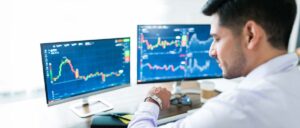Franklin Mutual Series’ Katrina Dudley sees President Emmanuel Macron’s re-election as a positive for the French economy and regional equity markets over the longer term.
A potential economic and political revolution in France and Europe was averted. President Emmanuel Macron won a decisive victory over the populist Eurosceptic Marine Le Pen in the second round of the French elections on 24 April. The results should allay immediate concerns about potential cracks in NATO and the European Union’s (EU’s) efforts to forge closer ties to respond to Russia’s devastating war in Ukraine. We also expect the market-friendly Macron to address high inflation in the cost of living stemming from higher energy and food prices, which should be positive for the region’s second-largest economy and broader regional equity markets.
Confronting a Cost-of-Living Crisis
Macron faces some significant economic challenges at the outset of his second term. The war in Ukraine has pushed already-high European energy prices even higher. Europe imports about 40% of its natural gas and almost 30% of its crude oil from Russia, according to data from regional statistics compiler Eurostat. Fears about the region’s lack of energy independence and potential supply interruptions have made regional energy more expensive over the past two months.
Given how important oil is to the global economy, rising prices could hurt economic output. Europe has been racing to find new supplies from the United States and Qatar to reduce its dependence on Russia. Some countries, like Germany, have been reluctant to immediately curtail Russian gas imports, while others are targeting the end of 2022 to stop using Russian energy.
Food prices, which started to rise last year, are of increasing concern in the region. Russia is a major exporter of fertiliser, a key input in crop production, and both Russia and Ukraine are significant wheat exporters. Supply disruptions resulting from the war are pushing up grain and other food prices.
European consumers have felt the pinch. As inflation stays higher for longer and trade remains disrupted, we could see greater demand destruction and a weakening of the European economy in 2022. In response to these pressures, we expect Macron’s budget to focus on supporting workers and insulating households from higher prices and a potentially shakier economy.
Another risk is the political ramifications of a weakening economy and higher prices. The French presidential election, which saw the defeat of the populist candidate, was not a complete mandate for Macron as Le Pen improved on her share of the vote from five years earlier and the more far-left and far-right parties did surprisingly well in the first round of voting. These gains are further underscored by rising support for populist parties from Spain to Hungary as economic anxiety increases. Macron’s next political test will be in the June legislative elections.
Focusing on the Future
In addition to tackling higher prices, we expect Macron to spearhead other potentially beneficial initiatives. The first is to push further labour market reforms and propose changes to the country’s unemployment insurance scheme. The new government will also need to come to a consensus on pension reform though we expect any changes, such as raising the retirement age from 62 to 65 years old, to be incremental.
Macron is also likely to focus on cutting corporate taxes and investing in key sectors for the future to boost long-term economic growth. Many of these investments have a “green” tilt to them, such as renovating 700,000 homes per year to cut energy consumption.
Some of the green efforts are part of broader EU strategy to focus on improving energy supply resilience, particularly given the challenges the region faces weaning itself off Russian natural gas. Europe’s move towards greater renewable energy generation was well underway prior to the Ukraine crisis, and the need for such a programme has become more pressing since the war began. We believe the region will need to continue to invest in local renewable energy as well as balance responsible climate stewardship against responsible energy security.
On the Corporate Margin
Business-friendly French policies may help mitigate some of the impact on corporate margins from higher energy, supply chain and logistics costs stemming from the war and the lingering effects of the pandemic. Initially, the question for companies was whether they had sufficient pricing power to pass along these costs. Now, however, there is a balancing act. Cost increases are so substantial that companies must weigh raising prices against the possibility they will hurt demand if they go too far. At the same time, they must consider the likelihood that they will hurt profits if they do not, or cannot, fully pass along higher costs.
Meanwhile, attempts to bring manufacturing closer to home and fortify supply chains that began during the pandemic should pick up pace over the coming years. Investing in greater supply chain flexibility involves reassessing the risks of locating factories in distant and undemocratic states. Firms also are evaluating resiliency beyond just their immediate suppliers; they are now considering the resiliency of the suppliers to their suppliers. As a result, we would expect to see companies build facilities closer to home and in places where potential political risks are lower, a potential boon to automation companies that help with reshoring.
Uncertainty from the grinding war in Ukraine and rising inflationary pressures are likely to endure for the near future. Eventually, we expect to see a Europe that is more united and economically and ecologically sustainable, and better able to withstand external shocks. Given France’s importance within the EU, we believe Macron’s re-election reinforces this positive outlook. We believe investors should benefit from a stronger Europe, and that the recent market volatility has only increased the potential to uncover heavily discounted long-term value opportunities.
Franklin Templeton Key risks & Disclaimers:
Important Legal Information
This material is intended to be of general interest only and should not be construed as individual investment advice or a recommendation or solicitation to buy, sell or hold any security or to adopt any investment strategy. It does not constitute legal or tax advice.
The views expressed are those of the investment manager and the comments, opinions and analyses are rendered as of publication date and may change without notice. The information provided in this material is not intended as a complete analysis of every material fact regarding any country, region or market.
Data from third party sources may have been used in the preparation of this material and Franklin Templeton (“FT”) has not independently verified, validated or audited such data. FT accepts no liability whatsoever for any loss arising from use of this information and reliance upon the comments, opinions and analyses in the material is at the sole discretion of the user.
Products, services and information may not be available in all jurisdictions and are offered outside the U.S. by other FT affiliates and/or their distributors as local laws and regulation permits. Please consult your own professional adviser or Franklin Templeton institutional contact for further information on availability of products and services in your jurisdiction.
Issued in the U.S. by Franklin Templeton Distributors, Inc., One Franklin Parkway, San Mateo, California 94403-1906, (800) DIAL BEN/342-5236, franklintempleton.com—Franklin Templeton Distributors, Inc. is the principal distributor of Franklin Templeton’s U.S. registered products, which are not FDIC insured; may lose value; and are not bank guaranteed and are available only in jurisdictions where an offer or solicitation of such products is permitted under applicable laws and regulation.
CFA® and Chartered Financial Analyst® are trademarks owned by CFA Institute.
What are the risks?
All investments involve risks, including possible loss of principal. The value of investments can go down as well as up, and investors may not get back the full amount invested. Brokerage commissions and ETF expenses will reduce returns. ETF shares may be bought or sold throughout the day at their market price on the exchange on which they are listed. ETFs trade like stocks, fluctuate in market value and may trade above or below the ETF’s net asset value. However, there can be no guarantee that an active trading market for ETF shares will be developed or maintained or that their listing will continue or remain unchanged. While the shares of ETFs are tradable on secondary markets, they may not readily trade in all market conditions and may trade at significant discounts in periods of market stress.
MeDirect Disclaimers:
This information has been accurately reproduced, as received from Franklin Templeton Investment Management Limited (FTIML). No information has been omitted which would render the reproduced information inaccurate or misleading. This information is being distributed by MeDirect Bank (Malta) plc to its customers. The information contained in this document is for general information purposes only and is not intended to provide legal or other professional advice nor does it commit MeDirect Bank (Malta) plc to any obligation whatsoever. The information available in this document is not intended to be a suggestion, recommendation or solicitation to buy, hold or sell, any securities and is not guaranteed as to accuracy or completeness.
The financial instruments discussed in the document may not be suitable for all investors and investors must make their own informed decisions and seek their own advice regarding the appropriateness of investing in financial instruments or implementing strategies discussed herein.
If you invest in this product you may lose some or all of the money you invest. The value of your investment may go down as well as up. A commission or sales fee may be charged at the time of the initial purchase for an investment. Any income you get from this investment may go down as well as up. This product may be affected by changes in currency exchange rate movements thereby affecting your investment return therefrom. The performance figures quoted refer to the past and past performance is not a guarantee of future performance or a reliable guide to future performance. Any decision to invest in a mutual fund should always be based upon the details contained in the Prospectus and Key Investor Information Document (KIID), which may be obtained from MeDirect Bank (Malta) plc.





